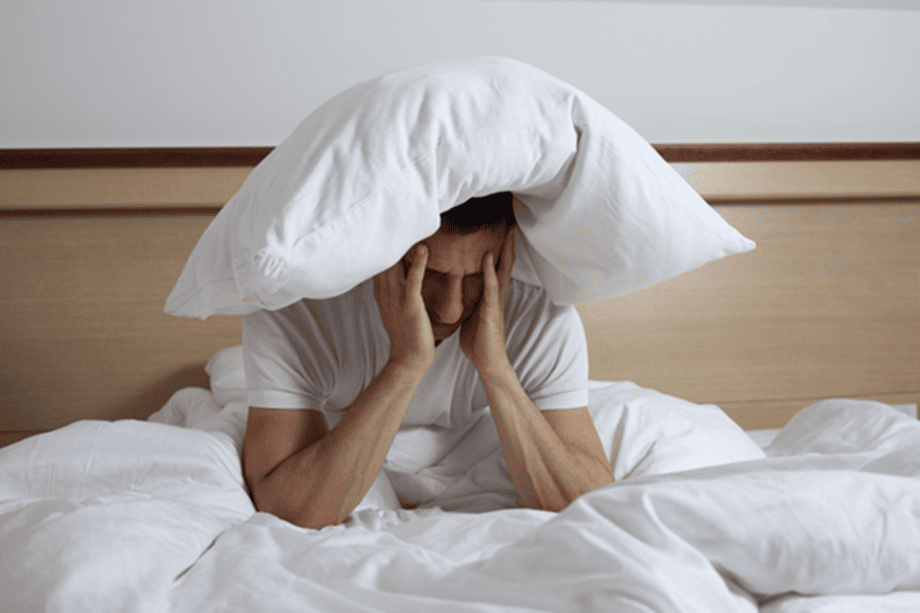Why Sleep Disorders Are More Common in People With PTSD

Sleep disorders are frequently observed in individuals with post-traumatic stress disorder (PTSD). This article aims to explore the underlying reasons for this association by examining the link between PTSD and sleep disturbances.
Additionally, it will investigate the common sleep disorders experienced by individuals with PTSD and the impact of trauma on sleep patterns.
The psychological factors contributing to sleep problems in PTSD will be discussed, along with the physiological effects of PTSD on sleep quality.
Finally, treatment approaches for sleep disorders in individuals with PTSD will be examined.
Key Takeaways
- There is a strong association between PTSD and sleep disorders.
- Hyperarousal, intrusive thoughts, and nightmares related to traumatic experiences contribute to insomnia and sleep disturbances in individuals with PTSD.
- Dysregulation of the HPA axis and alterations in the stress response system disrupt the sleep-wake cycle in individuals with PTSD.
- Addressing sleep disturbances is crucial for improving overall well-being and quality of life in individuals with PTSD.
The Link Between PTSD and Sleep Disorders
The current literature suggests a strong association between post-traumatic stress disorder (PTSD) and the prevalence of sleep disorders. Several underlying mechanisms have been proposed to explain this link.
One possible mechanism is hyperarousal, which is a common symptom of PTSD. Hyperarousal can lead to increased difficulty in falling asleep and maintaining sleep, resulting in insomnia.
Another mechanism involves alterations in the stress response system, specifically dysregulation of the hypothalamic-pituitary-adrenal (HPA) axis. Dysregulation of the HPA axis can disrupt the normal sleep-wake cycle and contribute to sleep disturbances.
Additionally, intrusive thoughts and nightmares related to traumatic experiences can disrupt sleep.
To manage sleep disorders in individuals with PTSD, sleep hygiene strategies are often recommended. These strategies include maintaining a regular sleep schedule, creating a sleep-conducive environment, and avoiding substances that can interfere with sleep, such as caffeine and nicotine.
Understanding Sleep Disturbances in PTSD
Understanding the relationship between sleep disturbances and post-traumatic stress disorder (PTSD) requires an analysis of the various factors contributing to disrupted sleep patterns in individuals with this psychiatric condition.
- Sleep disturbances in PTSD can be caused by both psychological and physiological factors.
- Psychological factors such as hyperarousal, nightmares, and intrusive thoughts can disrupt sleep.
- Physiological factors such as alterations in the stress response system and neurotransmitter imbalances can also contribute to sleep disruptions.
To address sleep disturbances in individuals with PTSD, various treatment options are available:
- Cognitive-behavioral therapy for insomnia (CBT-I) is a widely used intervention that focuses on changing maladaptive sleep behaviors and thoughts.
- Medications such as selective serotonin reuptake inhibitors (SSRIs) and prazosin can be prescribed to address specific symptoms related to sleep disturbances.
- Complementary approaches like relaxation techniques and mind-body therapies may also be beneficial in improving sleep quality.
Overall, understanding the complex interplay between sleep disruptions and PTSD is crucial in developing effective treatment strategies for individuals with this psychiatric condition.
Common Sleep Disorders Associated With PTSD
An analysis of the relationship between post-traumatic stress disorder (PTSD) and sleep disturbances reveals the presence of several frequently occurring disorders. Sleep disturbances are highly prevalent among individuals with PTSD, with up to 90% experiencing some form of sleep disruption. The causes of these sleep disorders in individuals with PTSD are multifaceted and can be attributed to a combination of physiological, psychological, and environmental factors. Table 1 provides an overview of the common sleep disorders associated with PTSD, their prevalence rates, and their impact on individuals’ sleep quality. It is important to note that these sleep disorders can further exacerbate the symptoms of PTSD, leading to a vicious cycle of sleep disruption and worsening mental health. Understanding and addressing these sleep disturbances in individuals with PTSD is crucial in improving their overall well-being and quality of life.
Table 1: Common Sleep Disorders Associated with PTSD
| Sleep Disorder | Prevalence in PTSD (%) | Impact on Sleep Quality |
|---|---|---|
| Insomnia | 50-90 | Difficulty falling asleep, frequent awakenings |
| Nightmares | 50-70 | Disruptive, vivid, and distressing dreams |
| Sleep Apnea | 30-60 | Breathing interruptions during sleep, snoring |
| Restless Legs Syndrome | 20-40 | Uncomfortable sensations in the legs, urge to move |
| Circadian Rhythm Sleep-Wake Disorders | 10-15 | Disturbances in sleep-wake patterns, excessive sleepiness or insomnia |
Impact of Trauma on Sleep Patterns
Research has shown that trauma can significantly disrupt and alter individuals’ patterns of sleep. Trauma survivors often experience sleep disturbances, which can have a profound impact on their overall well-being. Some key points to consider regarding the impact of trauma on sleep patterns include:
- Changes in sleep architecture: Trauma can lead to alterations in the different stages of sleep, such as reduced REM sleep and increased wakefulness during the night.
- Hyperarousal: Trauma survivors may exhibit heightened physiological and psychological arousal, making it difficult for them to relax and fall asleep.
- Nightmares and flashbacks: Traumatic experiences can manifest in the form of distressing nightmares and intrusive memories, making it challenging for individuals to get a restful night’s sleep.
Understanding the complex relationship between trauma and sleep disturbances is crucial for developing effective interventions to improve sleep quality and overall mental health in trauma survivors.
Psychological Factors Contributing to Sleep Problems in PTSD
Psychological factors such as hyperarousal, intrusive thoughts, and hypervigilance have been identified as significant contributors to the sleep problems experienced by individuals with post-traumatic stress disorder (PTSD). These factors can lead to physiological effects that disrupt normal sleep patterns.
Hyperarousal, characterized by increased physiological and psychological activation, can make it difficult for individuals with PTSD to relax and fall asleep.
Intrusive thoughts, which involve recurrent distressing memories or images related to the traumatic event, can intrude into the individual’s mind, preventing them from experiencing restful sleep.
Additionally, hypervigilance, a state of heightened alertness and readiness for potential threats, can make it challenging for individuals with PTSD to feel safe and secure enough to fall asleep.
These psychological factors and their associated physiological effects contribute to the increased prevalence of sleep disorders in individuals with PTSD.
Physiological Effects of PTSD on Sleep Quality
The psychological factors that contribute to sleep problems in individuals with PTSD have been previously discussed. However, it is also important to consider the physiological effects of PTSD on sleep quality.
Trauma experienced by individuals with PTSD can have a significant impact on their sleep architecture, leading to sleep disturbances.
The impact of trauma on sleep architecture can result in the following effects on sleep quality in veterans with PTSD:
- Fragmented sleep: Trauma can disrupt the normal sleep cycle, causing frequent awakenings and difficulty in maintaining continuous sleep.
- REM sleep disturbances: Individuals with PTSD often experience disruptions in rapid eye movement (REM) sleep, which is crucial for emotional regulation and memory consolidation.
- Hyperarousal: The heightened state of alertness and vigilance associated with PTSD can make it challenging to relax and fall asleep, leading to insomnia symptoms.
Understanding the physiological effects of PTSD on sleep quality can provide valuable insights into the management and treatment of sleep disturbances in veterans with PTSD.
Treatment Approaches for Sleep Disorders in Individuals With PTSD
This discussion focuses on the treatment approaches for sleep disorders in individuals with PTSD, specifically examining two key points: cognitive behavioral therapy and medication options.
Cognitive behavioral therapy (CBT) is a commonly used therapeutic approach that aims to address negative thought patterns and behaviors associated with sleep difficulties.
Medication options, on the other hand, involve the use of pharmaceutical agents to manage sleep disturbances in individuals with PTSD.
Cognitive Behavioral Therapy
Cognitive Behavioral Therapy (CBT) has been found to be an effective intervention for addressing sleep disturbances in individuals with PTSD. CBT focuses on identifying and modifying maladaptive thoughts and behaviors that contribute to sleep difficulties.
- Sleep Hygiene: CBT for sleep disorders often includes education on sleep hygiene, which involves establishing a regular sleep schedule, avoiding stimulating activities before bedtime, and creating a comfortable sleep environment.
- Stimulus Control: CBT also incorporates stimulus control techniques, such as limiting the bed to sleep-related activities and leaving the bedroom if unable to sleep within a designated time frame. This helps to strengthen the association between the bed and sleep.
- Cognitive Restructuring: Another component of CBT is cognitive restructuring, which involves challenging and modifying negative thoughts and beliefs about sleep. This helps individuals develop more realistic and positive sleep-related cognitions.
Medication Options
Medication options are often considered as a complementary treatment for addressing sleep disturbances in individuals with PTSD. While alternative therapies and lifestyle changes are important in managing sleep disorders associated with PTSD, medication can provide additional support.
Commonly prescribed medications for sleep disturbances in PTSD include selective serotonin reuptake inhibitors (SSRIs), benzodiazepines, and prazosin. SSRIs, such as sertraline and paroxetine, are frequently used due to their potential to improve sleep quality and reduce nightmares.
Benzodiazepines, such as clonazepam, may be prescribed for short-term relief of sleep disturbances, although their long-term use is generally discouraged due to potential side effects and dependency.
Prazosin, an alpha-1 adrenergic antagonist, has shown promising results in reducing nightmares and improving sleep quality in PTSD patients.
It is important to note that medication options should be carefully considered, and individuals should consult with healthcare professionals to determine the most appropriate treatment plan.
Frequently Asked Questions
What Are Some Common Symptoms of Sleep Disorders in Individuals With Ptsd?
Common symptoms of sleep disorders in individuals with PTSD include difficulty falling asleep, frequent awakenings during the night, nightmares, and daytime sleepiness. Treatment approaches may involve cognitive-behavioral therapy, medication, and relaxation techniques.
Are There Any Specific Factors That Contribute to the Development of Sleep Disorders in Individuals With Ptsd?
Factors contributing to sleep disorders in individuals with PTSD may include hyperarousal, nightmares, and intrusive thoughts. Treatment approaches for sleep disorders in individuals with PTSD may involve cognitive behavioral therapy, medication, and relaxation techniques.
How Does Trauma Affect the Overall Quality of Sleep in Individuals With Ptsd?
The traumatic impact of PTSD is known to disrupt the overall quality of sleep in individuals, leading to sleep disturbances. These disturbances may manifest as insomnia, nightmares, and other sleep-related disorders.
Can Sleep Disorders in Individuals With PTSD Be Effectively Treated?
The effectiveness of sleep disorder treatment in individuals with PTSD can be explored through alternative sleep medication options and mindfulness techniques. Further research is needed to determine the most effective interventions for this population.
Are There Any Specific Treatment Approaches That Are Recommended for Sleep Disorders in Individuals With Ptsd?
Treatment approaches for sleep disorders in individuals with PTSD include cognitive behavioral therapy for insomnia (CBT-I), imagery rehearsal therapy (IRT), and pharmacological interventions. These therapy options have shown effectiveness in improving sleep quality and reducing symptoms of PTSD.









